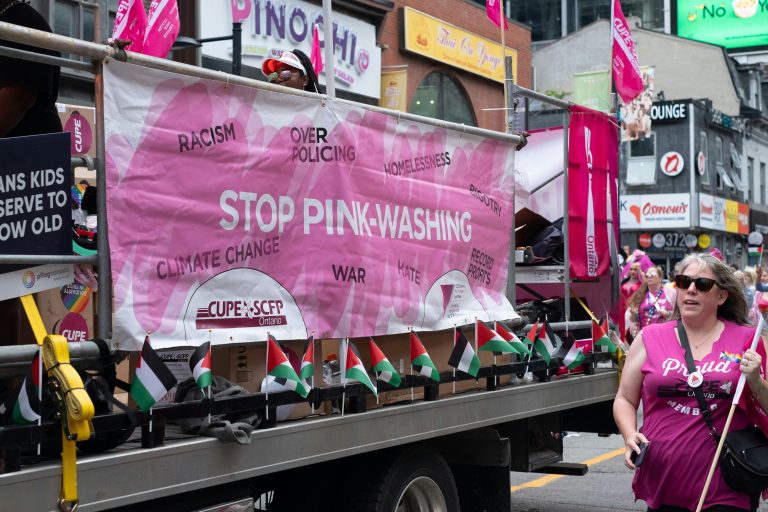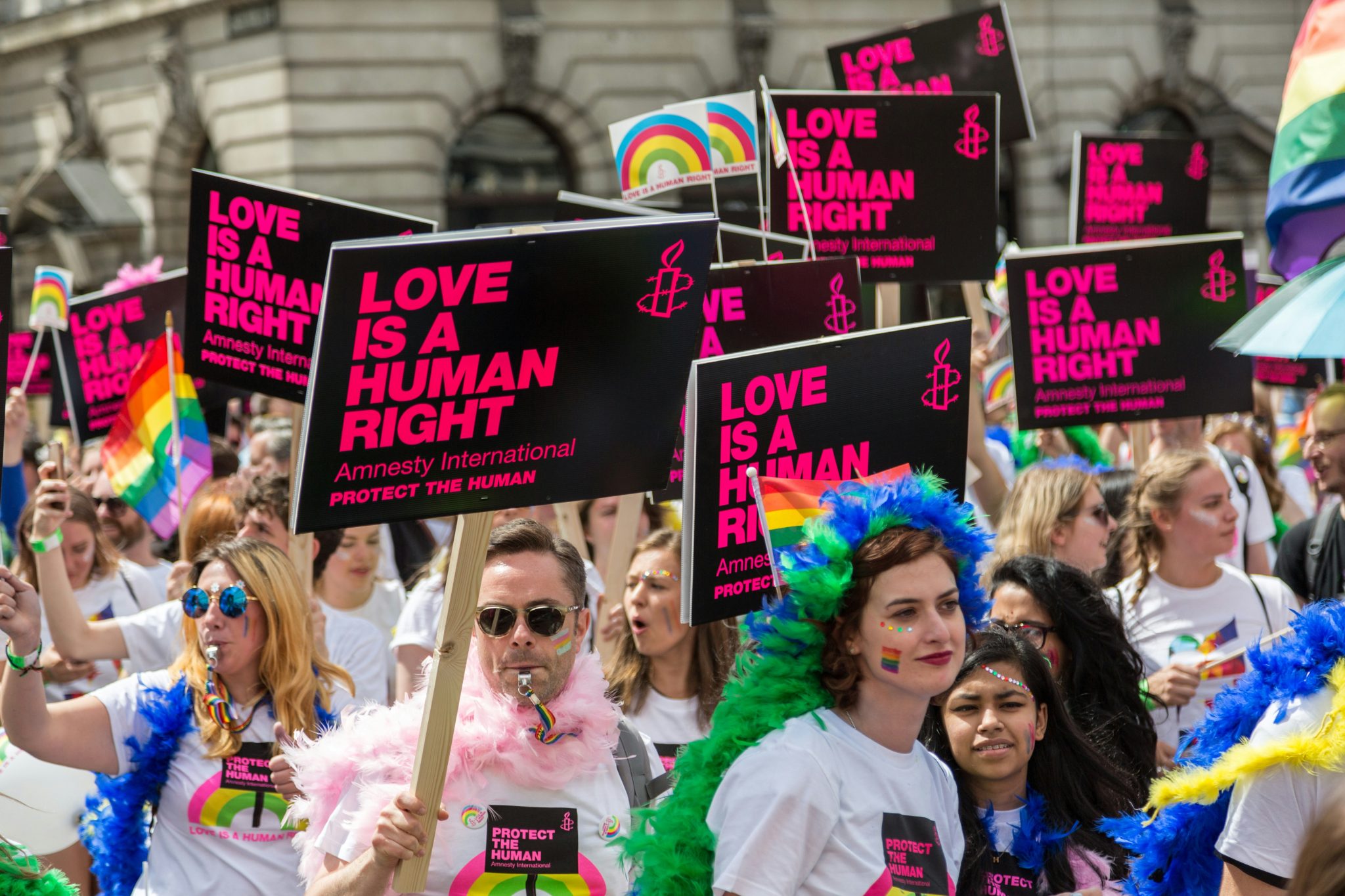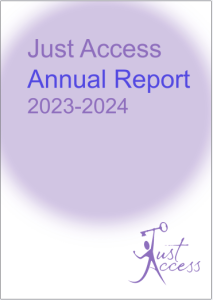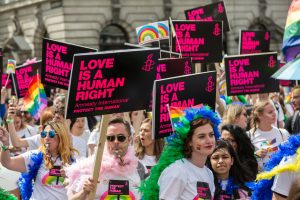
Debasmita Bhattacharya
Legal Fellow
Note on Terminology: In this blog post, I use the terms ãqueer,ã ãqueer people,ã and ãLGBTQ+ communityã interchangeably. I do not mean to suggest these terms are equivalent, and I welcome readers to notify me of any misinterpreted terms and I commit to correcting any improper uses.ô
Introductionô
Advocating for the human rights of marginalised groups is laudable, except when it is done as a form of virtue signaling as in the case of pinkwashing.ô ô
We may already be familiar with the term ãgreenwashing,ã which refers to the adoption of the climate change cause by corporations to appeal to investors and the public without making actual contributions towards addressing climate change. ô When in fact, some of the organisations employing greenwashing methods may be the largest contributors to the climate crisis. For example, H&Mãs ãConsciousã branding, which makes grand claims of producing sustainable fashion, was brought under legal scrutiny in 2022 for misleading advertising regarding its sustainable fashion solutions.ô ô
Pinkwashing operates in the exact same manner.ô
What is Pinkwashing?ô
Pinkwashingãwhere corporations, institutions, or even States proclaim support for the LGBTQ+ community to promote their own goals or to distract from human rights violationsãis commonly seen among large, multinational corporations and institutions. These corporations want to be seen as crusaders for various social justice causes without taking any actionable steps to ameliorate discrimination against members of marginalised groups.ô
The most important thing someone can do about pinkwashing is to notice it.
Pinkwashing by corporations is perhaps most visible during Pride Month in June. Various corporations change their marketing strategies and develop advertising techniques to appeal to the LGBTQ+ community andô its allies. However, their actions stop there; little to no attempt is made to meaningfully engage with LGBTQ rights. One example includes Mercedes-Benz changing the colours of their logo during Pride Month, but only in countries where homosexuality is legalised, leading LGBTQ activists to argue that these actions were simply performative.ô
Support our work!
We can only do our work thanks to the support of brave, passionate people like you!
Your donation will help us to keep fighting for human rights and access to justice for everyone, everywhere.
Pinkwashing and Israelô
Pinkwashing is not limited to corporations; in fact, the term was first adopted by queer activist circles in 2010 to respond to the Israeli Stateãs practice of using gay rights to modernise their image in the global arena. The State on numerous occasions has boasted their allegiance to the LGBTQ+ community, claiming Tel Aviv to be the ãGay Capital of the Middle East.ã In a press release dated the 8th of June, 2018, the Ministry of Foreign Affairs stated that ãPride in Tel Aviv is a beautiful celebration of gay rightsãÎin a region where many of the neighbors cannot live as their true selves.ã On the 13th of November, 2023, Israel posted a photo on their official Instagram page of a soldier in front of a tank holding a pride flag, with the caption ãfirst pride flag in Gaza.ã The soldier, Yoav Atmonzi, wrote in a personal Instagram post that ãthe IDF is the ONLY army in the Middle East that defends democratic values,ã and as such, he ãfully believe[s] in the righteousness of [their] cause.ãô
Pinkwashing is used to legitimise colonisation, oppression, and genocide.
Israel does recognise more rights for queer people than its neighbours; the State has prohibited discrimination based on sexual orientation and recognises same-sex marriages. However, these protections are comparatively minimal when looking at the rights of LGBTQ+ community members worldwide. This is evidenced by the fact that Israel itself does not permit same-sex marriages; civil same-sex marriages are only registered in Israel if they take place in another country.ô
At the same time, Israel uses its support for the LGBTQ+ community to legitimise its right to national sovereignty. This practice was coined in 2007 by Jasbir Puar as ãhomonationalismã and refers to the use of LGBTQ+ rights as a ãbarometer against which the right to sovereignty is evaluated.ã Israelãs queer allyship is intricately tied to its State-building process; as such, Israelãs colonial effort is inherent to its queer liberation efforts.ô ô
Israelãs support of queer people also promotes the Islamophobia and Arabophobia implicit in itsã and the West at largeãs ã messaging. The State’s claim to being the ãonly army in the Middle East that promotes democratic valuesã is contingent upon a portrayal of Arabs and Palestinians as ãhomophobic fanatics,ã completely ignoring both the existence of queer Muslim Arabs and the less-than-stellar record of treatment of queer people by the West. ô

Consequences of Pinkwashingô
One consequence of pinkwashing is the devaluation and tokenisation of queer people for a broader political game. Queer people are reduced to a monolith which is then used to enforce Western imperialism. This creates artificial binaries of Nations and institutions being either ãgay-friendlyã or ãhomophobicã and oversimplifies the desires and experiences of queer people. It also assumes that the common thread between all queer people is their sexuality, and ignores the variety of sexualities, ethnicities, genders, and other socioeconomic factors that colour the LGBTQ+ community and its allies.ô
More significantly, pinkwashing is used to legitimise colonisation, oppression, and genocide. Colonial efforts have historically relied on the creation of a barbaric/civilised dualism and the pinkwashing efforts by the Israeli State are no exception. In proclaiming itself the only liberal democracy in the Middle East, the State claims to ãciviliseã their barbaric and homophobic counterparts through colonisation and oppression.ô
What Can You Do?ô
The most important thing someone can do about pinkwashing is to notice it. This requires understanding that corporations operate for the ô purpose of making profits and that many Nation-states operate to push forward their nationalist agendas. This lens will allow people to recognise when allyship towards queer people comes from a place of genuine support and when it is part of a colonial narrative intended to marginalise and oppress.ô
Just Access e.V. is a non-party political organisation, whose mission is to support human rights and access to justice worldwide. ô The views and opinions expressed in this piece and those of the author, and do not necessarily represent those of Just Access e.V.ô
Subscribe to the Just Access newsletter
Don’t miss any of our blog posts, or any of our other great content!
Stay up to date with our work by subscribing to the Just Access Newsletter (six mailings per year).









